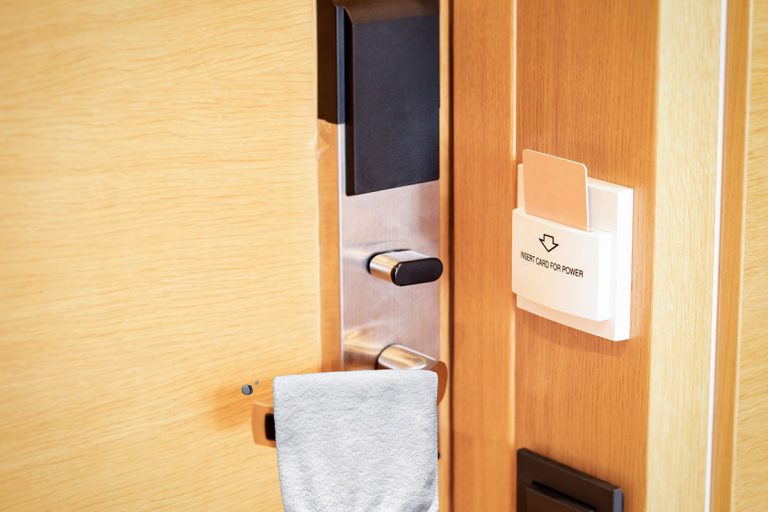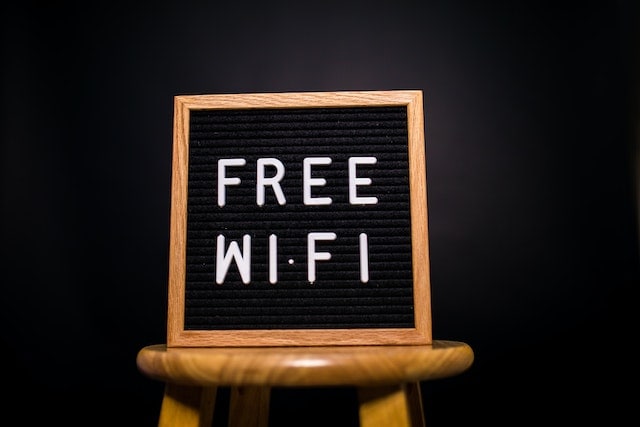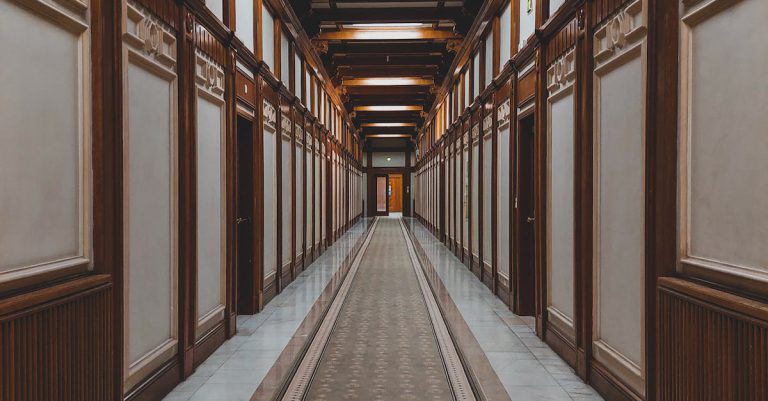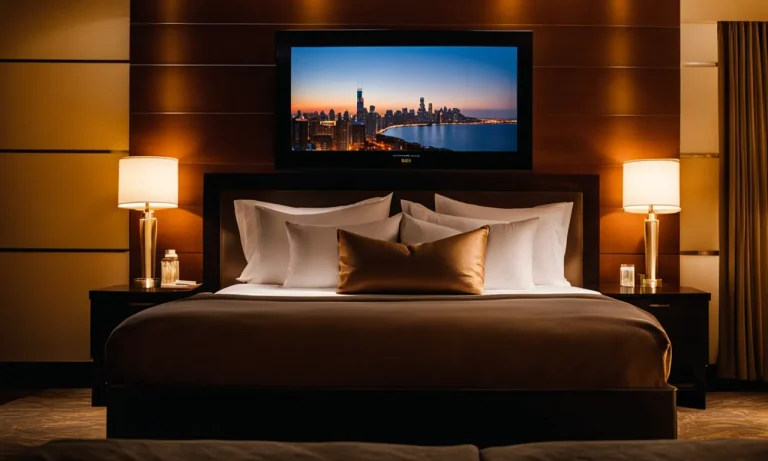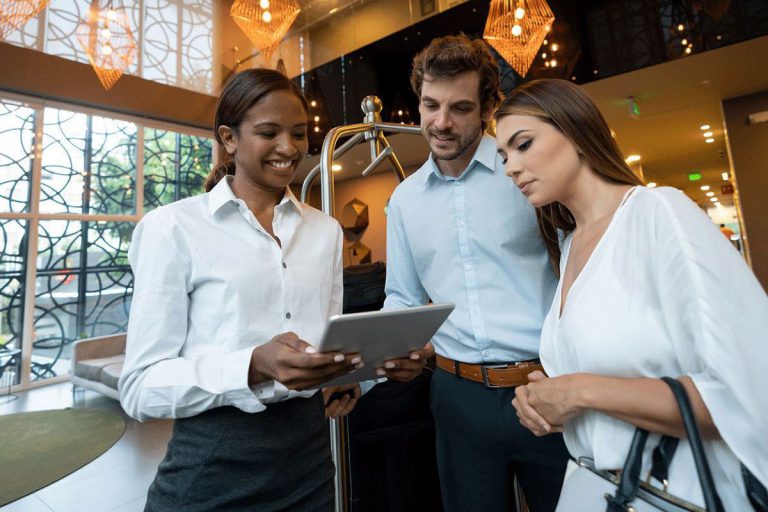In today’s world, personal safety is paramount, and this extends to every aspect of our lives, including travel. While hotels provide us with comfort and convenience, ensuring security within these temporary homes is crucial. If you’re short on time, here’s the quick answer: to maximize your hotel room security, utilize all provided locks, carry a portable door lock for additional safety, and be vigilant about who has access to your room.
In this detailed article, we will discuss a plethora of measures you can take to secure your hotel room, providing you with peace of mind during your travels.
Understanding the Basics of Hotel Room Security
When staying in a hotel, it is important to prioritize your safety and security. Understanding the basics of hotel room security can help you make informed decisions to protect yourself and your belongings. Two key aspects to consider are the locks provided by hotels and who has access to your room.
Locks provided by hotels
Hotels typically offer various types of locks to secure your room. The most common type is the traditional keycard lock. This system requires you to insert a keycard into a slot on the door, which then unlocks the room. These keycards are programmed to work only for the duration of your stay and are deactivated once you check out. However, it is important to keep your keycard safe and not share it with strangers, as this can potentially compromise the security of your room.
Some hotels also provide electronic locks, which use a keypad or a keycard with a built-in chip. These locks offer enhanced security features, such as the ability to change access codes regularly. It is advisable to inquire about the type of lock system the hotel uses and familiarize yourself with its operation to ensure that you can effectively secure your room.
Who has access to your room?
In addition to understanding the locks provided by hotels, it is crucial to be aware of who has access to your room. Hotel staff, such as housekeepers, maintenance workers, and management, typically have access to hotel rooms. While the majority of hotel employees are trustworthy professionals, it is always a good idea to take precautions to safeguard your belongings.
One way to enhance your room security is to use the additional latch or bolt lock on your door. This secondary lock provides an extra layer of protection and can prevent unauthorized entry even if someone has a keycard or access to a master key. Remember to use the latch whenever you are inside your room, especially when you are sleeping or taking a shower.
It is also advisable to take advantage of the hotel’s safe deposit box, if available. This will allow you to store valuable items, such as passports, jewelry, and extra cash, securely. Additionally, consider using a door wedge or portable door lock for added peace of mind.
Remember, while hotels take measures to ensure your safety, being proactive about your own security is essential. By understanding the basics of hotel room security and taking necessary precautions, you can enjoy a worry-free stay.
Utilizing the Existing Locks Effectively
When it comes to ensuring maximum security in your hotel room, one of the first things you should do is properly utilize the existing locks. These locks are designed to provide a certain level of protection, but they can only be effective if used correctly.
How to properly use deadbolts and security chains
Deadbolts and security chains are two common types of locks found in hotel rooms. To ensure their effectiveness, make sure to:
- Deadbolts: Always engage the deadbolt lock when you are inside the room. This adds an extra layer of security to the standard lock on the doorknob. Remember to lock the deadbolt whenever you leave the room as well.
- Security chains: Use the security chain whenever you answer the door. This allows you to partially open the door while maintaining some level of security. Keep in mind that security chains are not meant to be the sole protection; they are meant to provide a barrier and allow you to verify the identity of the person at the door before fully opening it.
Securing the windows
Windows can often be overlooked when it comes to securing a hotel room, but they can be potential entry points for intruders. Here are some tips for securing the windows:
- Keep windows locked: Ensure that all windows are locked when you leave the room or go to sleep. This prevents anyone from easily accessing your room through the windows.
- Use window wedges: Window wedges are small devices that can be placed in the window track to prevent the window from being opened further. These can be especially useful if your hotel room is located on a lower floor.
- Close curtains or blinds: Closing the curtains or blinds not only provides you with privacy but also prevents potential intruders from seeing inside your room.
Remember, these tips are meant to enhance the security of your hotel room, but they should not replace common sense and caution. If you have any concerns about the security of your hotel room, don’t hesitate to contact hotel staff or management for assistance.
Supplementing with Portable Security Devices
When it comes to ensuring the safety of your hotel room, supplementing your hotel’s existing security measures with portable security devices can provide an extra layer of protection. These devices are easy to carry and can be used to reinforce the door lock, making it more difficult for intruders to gain access to your room. Let’s explore some popular options for portable security devices that can enhance the security of your hotel room.
How a portable door lock works
A portable door lock is a small device that can be easily carried in your luggage or pocket. It is designed to provide an additional lock on your hotel room door, giving you peace of mind while you sleep or leave your room unattended. These locks are usually made of sturdy materials like stainless steel and are simple to install. You can attach them to the door handle or latch, preventing anyone from unlocking the door from the outside. Some portable door locks even come with an alarm feature that sounds if someone tries to tamper with the lock.
Using door jammers
Door jammers are another effective portable security device that can be used to reinforce your hotel room door. These devices are placed at the base of the door and create a barrier that prevents the door from being forced open. Door jammers are typically made of metal or heavy-duty plastic and are adjustable to fit different door heights. They are easy to use and can provide an added sense of security, especially if you’re staying in a location with a higher risk of break-ins.
Benefits of a door wedge alarm
A door wedge alarm is a portable security device that combines the functionality of a doorstop and an alarm system. It is placed at the bottom of the door, wedging it shut and activating an alarm if someone tries to open it. The loud noise produced by the alarm can alert you and other guests nearby, potentially scaring off intruders. Door wedge alarms are compact, lightweight, and often come with adjustable sensitivity settings to suit your preferences. They are an excellent choice for travelers looking for a versatile and effective security solution.
Remember, while portable security devices can greatly enhance the security of your hotel room, they should not replace or compromise the existing security measures provided by the hotel. Always consult with hotel staff and follow their recommendations for a safe and secure stay.
Additional Safety Practices
When it comes to ensuring maximum security for your hotel room, there are a few additional safety practices you can follow. These practices can help you feel more at ease and provide an added layer of protection during your stay.
Safekeeping your room key
One of the most important things you can do to enhance the security of your hotel room is to keep your room key safe. Make sure you don’t leave it lying around or in plain sight when you’re out of the room. It’s best to keep it with you at all times, either in a secure pocket or in a small bag that you carry with you. If you happen to lose your room key, notify the hotel staff immediately so they can take appropriate measures to ensure your safety.
Not opening the door to strangers
While it may seem like common sense, it’s important to reiterate that you should never open the door to strangers, even if they claim to be hotel staff. If someone knocks on your door unexpectedly, use the peephole or call the front desk to confirm their identity before opening the door. It’s always better to be safe than sorry, and hotel staff will understand and appreciate your concern for your safety.
Use of ‘Do Not Disturb’ signs
Another simple yet effective safety practice is to utilize the ‘Do Not Disturb’ sign provided by the hotel. By hanging this sign on your door, you indicate to others that you do not want anyone entering your room while you are inside. This can provide an extra layer of security and privacy, giving you peace of mind during your stay. However, it’s important to note that this sign should not be used as a permanent solution. Make sure to remove it when you leave your room for an extended period, as it may attract unwanted attention.
By following these additional safety practices, you can enhance the security of your hotel room and ensure a more comfortable and worry-free stay. Remember, your safety is a top priority, and taking these extra precautions can go a long way in providing you with peace of mind during your travels.
Conclusion
Securing your hotel room door effectively is an integral part of ensuring a safe and enjoyable travel experience. While hotels generally provide a good level of security, taking additional precautions can bring much-needed peace of mind. By effectively utilizing the existing locks, supplementing with portable devices, and adopting smart safety practices, you can significantly enhance the security of your hotel room. Remember, your safety is paramount, and taking the time to secure your space can make all the difference during your stay.

